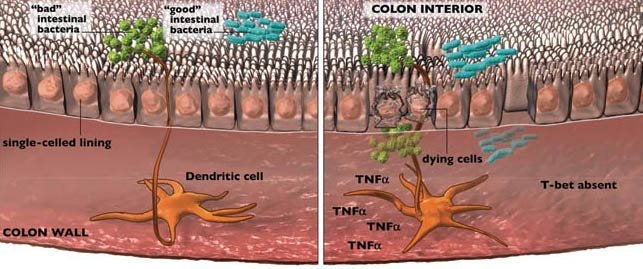In the healthy colon, or bowel, of both mice and humans, a thin lining protects the intestinal wall from bacteria. There, immune system dendritic cells in the wall sample bacteria that live within the bowel, vigilant against unwelcome invaders.
Within these cells, a “peacekeeper” protein, T-bet, restrains the cells from picking fights at the interface of bacteria and bowel. As a result, the body tolerates certain bacteria essential for digesting food.
Mice lacking T-bet develop a virulent form of ulcerative colitis. HSPH scientists have found that, when T-bet is absent, dendritic cells make excess TNF-alpha, killing off cells in the colon’s protective lining and allowing “bad” bacteria to cross the border. The resulting inflammation causes ulcers in the intestinal wall and the harsh hallmark symptoms of ulcerative colitis.
illustration: David Fierstein
